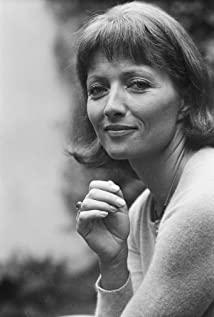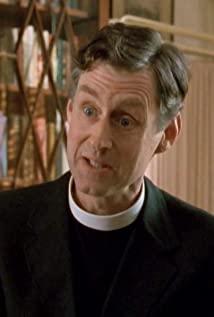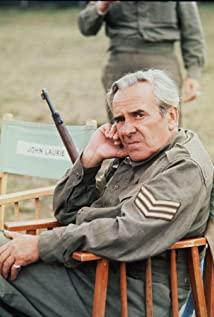In the countdown to the last episode, Julia finally has a blast, walking by the manor's emblematic fountain with Charles, who is still using his outsider, lukewarm, middle-class Class eyes depicting the entanglement between the family, Julia suddenly stopped angrily and asked why you always look at us and these things with such an outsider's eyes, Charles replied lightly, this is me The way of doing things, Julia finally slaps Charles in the face with the stick in her hand.
At the time, I thought, oh my God, this question is so powerful, it's more precise than Julia's question in the movie version, "What the hell does Charles Ryder want?" Write a long article. But totally unable to write.
It took me about a month to watch this 11-episode drama on and off.
Brideshead Revisited, I'm so fascinated by this story. In 2013, I watched the movie and made up the novel. I read it several times, and I suddenly cried because I was in the airport all night waiting for the flight. I still remember the cry clearly, probably after Sebastian disappointed his mother countless times, his mother found Charles and hoped that he could save the little son, saying, to the effect, he doesn't care about the whole family, he only I like you alone. At that time, I suddenly felt very, very wronged, the kind of deep feelings that the whole world, bystanders, close people, and passers-by have seen through, and the parties also knew the tacit feelings, but in the end I was let down. Gotta be a mess.
At first I was attracted by the gimmick and saw this story as a pure bisexual love story. An ambitious middle-class teenager, dealing with a pair of beautiful aristocratic siblings, ends up empty-handed, looted by war and the great era. This is what I was impressed by the massive adaptation of the film version. Sebastian gave Charles a kiss outside the Temple of the Four Winds, but there was no reply. A three-person trip to Venice, the real love of Charles and Julia. At the engagement ceremony of Julia and Rex, Sebastian shouted "You approach me only to sleep with my sister", and even more blood spilled into the sky.
Later, when I read the original book, because it was too restrained and obscure, I couldn't figure it out. It feels like a growth story, it is long, so self-destruction all the way, cruel youth in the background of the big era.
I didn't realize it was a religious story until I watched the TV series. Fashionable clothes, lavish parties, and the wonderful gay teenagers of the Oxford Club are all shells of the religious core. The author tells a story of all kinds of people and Catholicism, some people surrender, some people believe, some people struggle all their lives and finally compromise, and some people are dubious and eventually destroyed. And Charles Ryder is a bystander. Although he has countless intersections with the people of the entire manor, as an atheist, he watches this group of people being manipulated by religion.
The TV series clarifies that Charles is not a careerist, on the contrary, he is simply the opposite of a careerist. He is a particularly indifferent person. That kind of indifference is not evil, but inaction, passive inaction. When I understood this, I suddenly figured out a lot of foreshadowing, such as why the author spent a lot of time writing about the unusually thin relationship between Charles and his father. His father didn't know that he was going to Oxford, and he didn't know that he was a How much money you spend every month, it seems that you are only immersed in your own world forever. Because genes are so powerful and family education is so profound, Charles didn't know how to care about a person or one thing in his life. He is always a bystander. He couldn't fit into other people's stories, he was too detached, his ability to empathize was zero, and when Julia's father was dying, he happily walked into Julia's room and told her that he was going to fight Catholicism to the end—— Because it was in line with his own logic and position, he was unaware of Julia's sadness and struggle.
To be honest, I am often annoyed by Charles' selfishness and indifference in this show. His cold violence to his wife, the frankness of marrying her only for "sexual attraction" and "she looks like a painter's wife". His indifference and self-restraint towards Sebastian, he went to see Sebastian, always maintaining a sense of restraint and calm distance, although he was very, very shaken by the plight of this young master, he was still indifferent - almost facial paralysis to persuade him to go back. and returned to England immediately after the defeat.
If this can be explained barely, he respects Sai's wishes. But later, when Kdelia brought back the news of Sebastian (sickness, travel, loss of a partner), he still replied calmly, "I hope he did not suffer". And Kdelia replied, "yes, he did. unbearable pain."
You just don't know what Charles is thinking. He may be shaken, guilty, and in a trance in a normal way, but he is restrained on the outside, or he may be unmoved and ruthless. Because this character is "I" in the book, there is not much description, it is like a transparent narrative channel, and Uncle Tie plays the role's blandness and transparency to the core.
I actually hated him to the point of beating him to death before watching the last episode. He's more annoying to me than the traditional pure villain, because he doesn't do bad things, he just lets bad things happen (and, you can justify saying he can't stop them), like in Sebastian When Ann was addicted to alcoholism and threw himself on him like a puddle of mud, he clearly knew that he was the last straw. Tuxedo, pulled Sebastian up the stairs and said, "Go to sleep." He just casually covered up a rotten problem, and then he went downstairs and continued to deal with the group of beautiful and rich people. At that time, I was really speechless and choked in my heart. I scolded my mother countless times and hit him a thousand times. I didn't get tired of hitting him. It felt like March.
But in the last episode, I suddenly couldn't hate him. Because the only time, and the only time in this story, that he made a gesture to change something, and failed so utterly, I couldn't bear to hate him any more. I can't describe the height and depth of the final episode, which packed death, fear, compromise into this episode. When Charles sent the doctor to the car, he said that the Lord was very fighting and kept saying that he would get better, but the doctor said that this was a manifestation of his extreme fear of death. The Lord's mistress also said that when he was in better health, he would speak of death in a playful tone, saying that he was ready. This kind of complexity and subtlety of human nature, and the fear of death that is completely irresistible, are all reflected in this 1981 TV series.
In the end, Charles fought hard to let the priest do the last confession ceremony for the Lord. This was really probably the first time in his life that he showed a clear flag and made the face that has always been blurred clear. He debated the absurdity and misunderstanding of Catholicism with Brideshead, and he stopped the godfather as an unjustifiable concubine, and his attitude suddenly firmed up. This had to make my nose suddenly sore. Because I thought of Sebastian, this character did not appear at all in the second half of the TV series, and even the title subtitles disappeared.
At the beginning of the story, Charles's attitude towards religion was not so clear. When he followed him to the chapel, he dipped some holy water, and was told that you don't have to do this if you don't believe in it. At that time, he was still ignorant about religion. chaos. But after so many years, he saw that Se was destroyed by him, and that Julia was gradually following in his footsteps, and his attitude became so firm.
I was wondering if he had been so tough in the first place, the superhero attitude to save the family would not have happened. But the cause and effect could not be reversed, and his fierce attitude before the Lord's death probably stemmed from his inner shock to Sebastian's fate. But in the end he failed, and with the last of his strength the Lord made the cross, and he suddenly knew that the struggle of the first half of his life was over, and he got up, left the bedroom, and waited for Julia to come out and say her final goodbyes. That part was very moving, they sat on the stairs and said nothing, knowing that the death of their father was the end of their relationship. Julia was going back to that cage, and she was going to start atoning for her failed marriage. They wept briefly for a while, then said goodbye with restraint.
The TV version made Julia a lot more fleshed out (the movie treats her like an unreasonable jerk) and gave me a very good understanding of her motivations, contradictions, and choices. Especially the part between her and Rex is actually very subtle (the whole story, the whole play, is a capital subtle, to be honest, only the British can handle this level of subtle), The plot unfolds very lightly and reasonably. The girl's infatuation with the glib, sophisticated middle-aged businessman, dealing with a game, and finally falling in love with a total loss, being trapped in, the process is very smooth, and the film directly Dealing with her mother's order is too much contrary to the original (in fact, her mother and brother are very opposed to it, because Rex was married before, which is not acceptable for Catholics).
When Julia and Charles reunited, there was a very wonderful description of Rex, to the effect that Rex was an incomplete person, he was like the evolution of a certain organ in a person's body, and he was deformed. That passage impressed me so deeply that I could use it later if I wanted to mock someone.
Strangely enough, the best portrayal of characters in this show is through the mouths of others. For example, Clydia recounted to Charles the situation when she took care of Sebastian. She said that although Sebastian was already poor and his situation could not be worse, the people around him always liked him, and he was always lovable no matter what. of. Having said that, I really understood why I love this character so much. The character isn't that pleasant in any way, he's deviant, overly gloomy, alcoholic, and rambunctious, but he has one quality above all else, which is lovable, and you have to take it.
Sebastian becomes the character best understood. He was born into a Catholic family, and his family is a committed believer. He is a homosexual and bears the original sin. He does not dare to expect normal happiness, and can only obtain a little justification for living through self-destruction and suffering. I discussed with my friends, if Charles was not so scumbag, but took the initiative to save him, would his ending change? Because he thinks that the original sin he bears makes him unable to be with any positive young man with a bright future, he can only be with someone like Kurt who is rotten from the roots, he feels, She is being punished and suffering in order to live (as Clydia has always believed, her little brother suffered so much because she was called by God, and only in this way can she become a god). The author's final purpose is probably still to say, you see, your religion makes it impossible for you to live the life you want to live with peace of mind, Julia can't divorce her bad husband for the next marriage, and Sebastian can't live a debauchery The gay life of Brideshead and Kdelia was consensual, but their lives were far from satisfactory.
Therefore, this young master with a golden spoon, pampered, and beautiful with feminine beauty, in the damp and hot broken room, supporting the broken body, has to stand up to help Kurt find a pack of cigarettes under the bed . Charles wanted to help, he said, no, this is what I should do.
He felt he deserved to suffer.
There really is no one to save that.
In the story his mother read, religion was like an invisible hook and an invisible long thread that wandered to the ends of the earth, but a yank would pull him back. As for Charles, it was the dull sky. He didn't pull Sebastian, but just like a bystander, with his hands behind his back, witnessing his fate. The sky is powerless.
It's just that he returned to the manor as an officer at the end of his middle age. He saw that the oil painting he painted when he was young had been painted in a mess by others. The scene was exactly the same as that at that time. But at that time, there was a young man with blond hair and a white shirt, tying his coat leisurely around his shoulders, focusing on one leg and standing beside him watching his paintings.
View more about Brideshead Revisited reviews











